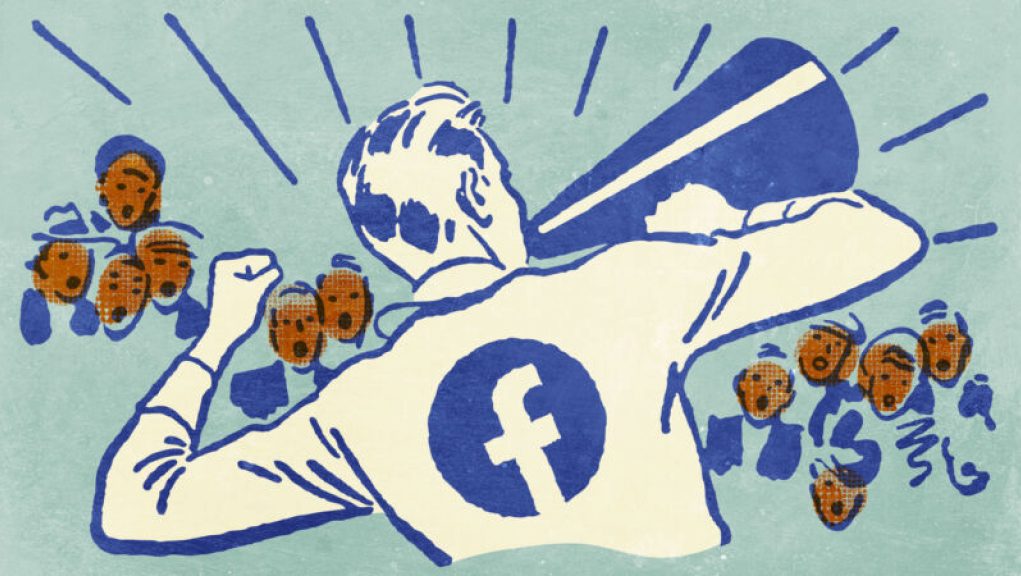Over the last several years, there has been a growing concern about the influence of social media on fostering political polarization in the US, with critical implications for democracy. But are our online “echo chambers” really to blame for this polarization, or does social media simply reflect and amplify existing divisions? Various strategies have been proposed to reduce polarization and the spread of misinformation on social media, but their effectiveness remains uncertain.
The US 2020 Facebook and Instagram Election Study is an unprecedented collaboration between independent external academics and Meta, the parent company of Facebook and Instagram. This project aims to explore the role of social media in democracy within the context of the 2020 US election. It also stands out for the level of transparency and independence granted to academic researchers by Meta. Now, we have the first results from this unique collaboration, presented in four separate papers—the initial round of over a dozen studies stemming from the project.
Three of these papers were published in a special issue of the journal Science. The first paper investigates the ideological segregation of political news content on Facebook. The second paper explores the effects of a reverse chronological feed versus an algorithmic one. The third paper examines the impact of exposure to reshared content on Facebook. Lastly, the fourth paper, published in Nature, delves into the contribution of social media “echo chambers” to increased polarization and hostility.
Advertisement
“We have found that algorithms play a significant role in shaping people’s experiences on the platform, and there is a notable ideological segregation in political news exposure,” said Natalie Jomini Stroud of the University of Texas at Austin, co-academic research lead for the project, along with Joshua Tucker from New York University, during a press briefing. “Furthermore, popular proposals to change social media algorithms did not have a significant impact on political attitudes.”
Ideological Segregation
Let’s delve into the question of whether Facebook enables more ideological segregation in users’ consumption of political news. Sandra Gonzalez-Bailon from the University of Pennsylvania and her co-authors analyzed the behavior of 208 million Facebook users between September 2020 and February 2021. Due to privacy concerns, they focused on aggregated measures of audience behavior and composition, rather than individual-level data. Therefore, the URLs they examined had been posted by users more than 100 times.
The results are clear: conservatives and liberals do indeed encounter and engage with different sets of political news, indicating strong ideological separation. This segregation is even more pronounced when political news is posted by pages or groups rather than individuals. “In other words, pages and groups contribute much more to segregation than users,” explained Gonzalez-Bailon. Additionally, politically conservative users experience higher levels of segregation on Facebook compared to liberal users, with a greater number of political news URLs exclusively seen by conservatives.
Interestingly, the majority of political news rated as false by Meta’s third-party fact-checker program was viewed by conservatives, rather than liberals. However, these false ratings only accounted for an average of 0.2 percent of the total content on Facebook. It’s worth noting that political news in general represents just 3 percent of all shared posts on the platform, indicating that it is not the most popular type of content. “This segregation is the result of a complex interaction between algorithmic and social forms of curation, and disentangling these feedback loops is challenging with observational data,” added Gonzalez-Bailon, discussing the study’s findings.
Facebook is a pervasive platform for sharing information and ideas, and it has become increasingly influential in the way that people discuss political issues at home and on the world stage. In the 2020 presidential election, the role of Facebook in polarizing voters and sowing discord has been studied more closely than ever before. A complex analysis of Facebook’s role in 2020 election-related political polarization reveals that the platform undoubtedly had a role to play, but its influence is more multifaceted than has been widely discussed.
A key element to consider when assessing Facebook’s role in political polarization is the platform’s overall impact on user engagement and discourse. Facebook encourages user interaction with a range of content, and this can lead to users being exposed to a wider range of opinions from across the political spectrum. This can help to create a more balanced view of an issue, and potentially even serve to bridge ideological divides.
However, even this positive aspect of Facebook can be misused. During the 2020 election, there were numerous reports of political disinformation campaigns targeting certain users. By regularly feeding users selective pieces of information designed to sway their opinions, these campaigns effectively contributed to further polarization of public opinion.
Additionally, Facebook’s algorithmic feed curation has been cited as a cause of further political polarization on the platform. By showcasing content to users based on their past interactions and shared perspectives, it may be possible for the platform to exacerbate ideological divides. This is especially true if users are presented with ideological echo chambers of similar ideas, which can further encourage and empower extreme beliefs.
Overall, it is clear that Facebook had a role to play in the political polarization of the 2020 presidential election. Yet this analysis shows that its influence was far more complex than simply facilitating polarizing campaigns or the rise of echo chambers. While the platform undoubtedly provides an open environment for the sharing of a range of opinions, it also requires careful navigation and management to ensure it is used responsibly. As such, this analysis reveals that the role of Facebook in political polarization extends well beyond the mere presence of the platform.




















